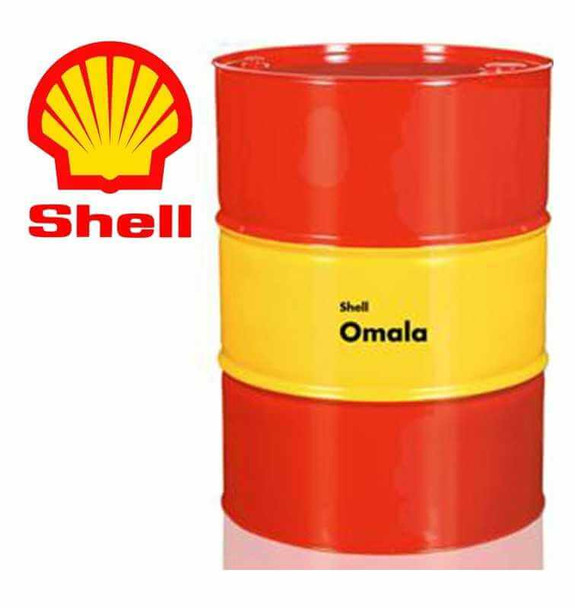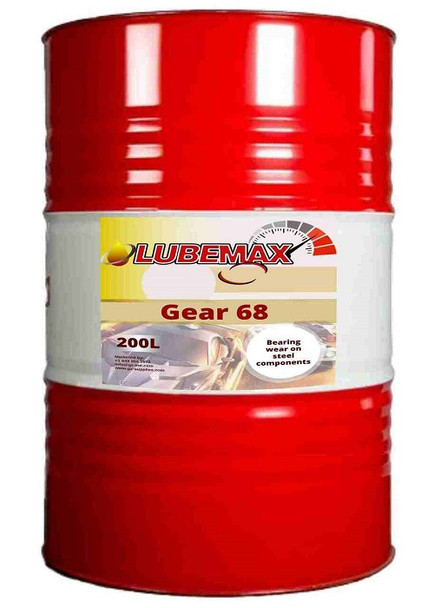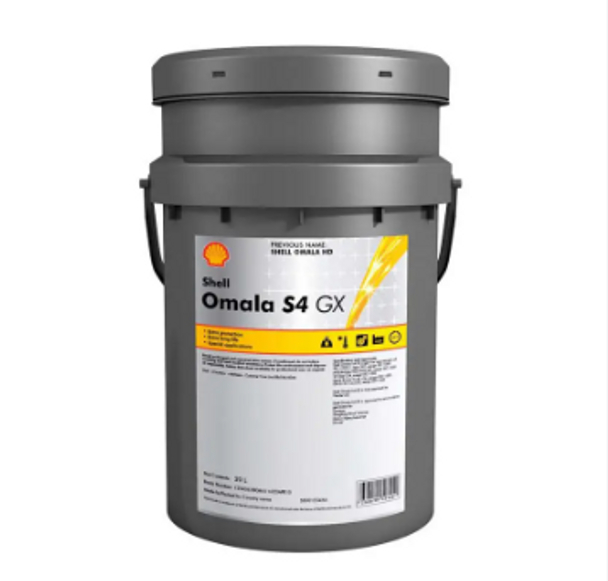Industrial Gear Oils: Best Options for High-Performance Machines
Key Takeaway
- Critical Role of Gear Oils: Gear oils are essential for reducing friction, dissipating heat, and protecting gears in high-performance machinery.
- Key Features to Look For: Opt for oils with thermal stability, anti-wear properties, and compatibility with seals for optimal performance.
- Types of Gear Oils: Choose from mineral-based, synthetic, or bio-based oils depending on your operational requirements and environmental considerations.
- Selection Factors: Consider machine specifications, operating conditions, and environmental exposure when selecting gear oils.
Introduction
Industrial gear oils are essential for maintaining the efficiency and durability of high-performance machines. They provide crucial lubrication that reduces friction, minimizes wear, and ensures smooth operation even under extreme conditions. High-quality gear oils are formulated with features like thermal stability, oxidation resistance, and anti-wear properties, making them suitable for demanding industrial environments.
Whether you’re using mineral-based, synthetic, or bio-based oils, selecting the right type based on your machinery’s specifications and operating conditions is critical. Regular maintenance, including oil analysis and proper storage, further enhances the performance and lifespan of your equipment, reducing downtime and operational costs.
Shell Omala F Industrial gear oil
Key Features of High-Performance Gear Oils
Choosing the right gear oil means understanding the features that ensure optimal performance:
1. Thermal Stability and Oxidation Resistance:
High-performance oils withstand extreme temperatures, reducing degradation over time.
2. Anti-Wear and Extreme Pressure Properties:
These properties protect gears from scuffing, pitting, and other forms of wear under intense conditions.
3. Seal Compatibility:
Quality oils maintain compatibility with seals to prevent leaks and maintain oil integrity.
4. Resistance to Foaming and Sludge Formation:
Effective oils prevent foam buildup and sludge, ensuring smooth operation and reduced maintenance costs.
Types of Gear Oils
The type of gear oil you choose depends on the machinery’s requirements and operational conditions:
1. Mineral-Based Gear Oils
These are derived from refined crude oil and are suitable for general-purpose applications. While they’re cost-effective, they may not perform well under extreme temperatures or heavy loads.
2. Synthetic Gear Oils
Made from chemically engineered base oils, synthetic gear oils provide superior performance in high-temperature and high-pressure environments. They are long-lasting and ideal for demanding industrial applications.
3. Bio-Based Gear Oils
These environmentally friendly options are made from renewable resources. They offer excellent lubrication properties and are suitable for industries with strict environmental regulations.
LubeMax Industrial EP 1000 Gear Oil
Factors to Consider When Choosing Gear Oils
Selecting the right gear oil involves evaluating several critical factors:
1. Machine Specifications:
Always refer to the Original Equipment Manufacturer (OEM) recommendations to ensure compatibility.
2. Operating Conditions:
Consider the temperature range, pressure, and type of load the machinery operates under.
3. Gear Type:
Different gears, such as spur, helical, or bevel, may have specific lubrication requirements.
4. Environmental Factor
Assess the potential exposure to water, contaminants, or extreme temperatures that could affect oil performance.
Benefits of Using High-Quality Gear Oils
Investing in high-quality gear oils offers numerous advantages that extend beyond basic lubrication:
1. Enhanced Efficiency:
Superior lubrication reduces friction, allowing machines to operate smoothly and consume less energy.
2. Extended Equipment Lifespan:
By minimizing wear and tear, quality oils prolong the life of gears, bearings, and other components.
3. Reduced Downtime:
Reliable lubrication lowers the risk of equipment failure, resulting in fewer interruptions and increased productivity.
4. Cost Savings:
Though premium oils may have a higher upfront cost, they significantly reduce maintenance and replacement expenses in the long run.
5. Environmental Benefits:
Advanced formulations improve energy efficiency and reduce the carbon footprint of industrial operations.
LubeMax HI-Gear Max 80W90 25L
Top Gear Oil Options for High-Performance Machines
When selecting gear oils, it’s crucial to choose brands and formulations tailored to your machinery’s specific needs:
1. LubeMax Industrial EP 1000 Gear Oil:
Known for exceptional performance under extreme pressure conditions, making it ideal for heavy-duty industrial applications.
2. LubeMax Industrial EP 680 Gear Oil:
Features advanced thermal stability and oxidation resistance, perfect for machines operating in high-temperature environments.
3. Shell Omala F Industrial gear oil:
Offers eco-friendly, biodegradable formulations without compromising on lubrication quality.
Each brand delivers unique benefits, so consider consulting experts or performing an oil analysis to determine the best option for your equipment.
Maintenance Tips for Gear Oils
Proper maintenance practices are essential for maximizing the performance and lifespan of gear oils:
1. Regular Oil Analysis:
Monitor oil quality and detect contamination, oxidation, or wear particles to address issues before they escalate.
2. Proper Storage:
Store oils in a clean, dry, and temperature-controlled environment to prevent contamination.
3. Scheduled Oil Changes:
Adhere to the manufacturer’s recommended intervals to ensure optimal lubrication.
4. Clean Components During Oil Changes:
Remove residue and buildup from gears to maintain efficiency and prevent contamination of new oil.
5. Monitor Seals and Connections:
Inspect seals regularly to prevent leaks and maintain the integrity of the lubrication system.
LubeMax Gear 68 200L
Common Gear Oil Challenges and Solutions
Even with high-quality gear oils, some challenges may arise. Understanding these issues and addressing them promptly can ensure optimal performance:
1. Oxidation and Sludge Formation:
Prolonged exposure to heat and air can degrade oil, causing sludge. Use oils with high oxidation resistance and schedule regular oil changes.
2. Foaming Issues:
Excessive foaming can lead to poor lubrication and overheating. Select oils with anti-foaming additives and ensure proper venting of the gear system.
3. Water Contamination:
Water can mix with gear oil in humid environments, reducing its efficiency. Use desiccant breathers and regularly monitor oil for water contamination.
4. Seal Compatibility Problems:
Incorrect oil can degrade seals, leading to leaks. Always choose oils compatible with your system’s seals and follow OEM recommendations.
Shell Omala S4 GX Industrial Gear Oil
Frequently Asked Questions
1. What is the primary role of gear oil in industrial machinery?
Gear oil provides lubrication to reduce friction, dissipate heat, and prevent wear and corrosion in machine gears, ensuring smooth and efficient operation.
2. How often should gear oil be replaced?
The frequency depends on the machine's workload and the type of oil used. Consult the manufacturer’s guidelines and perform regular oil analysis to determine the optimal interval.
3. What is the difference between mineral and synthetic gear oils?
Mineral oils are refined from crude oil and are suitable for general use, while synthetic oils are chemically engineered for superior performance in extreme conditions.
4. Can I mix different types of gear oils?
Mixing oils can cause compatibility issues and degrade performance. Always use a single type and brand of oil for consistency.
5. How can I identify if my gear oil is contaminated?
Signs of contamination include changes in oil color, consistency, and the presence of particles or water. Regular oil analysis helps detect contamination early.
Related Articles
Which Industrial gear oil is best for heavy-duty machines?
Why Choose Shell 20W50 Engine Oil: Benefits, Applications, and Performance
The Essential Guide to Industrial Lubricants: Types and Applications
Readers also Watched...
Conclusion
Selecting the right gear oil is essential for maintaining high-performance machines. From enhancing efficiency to reducing maintenance costs, high-quality gear oils provide numerous benefits. Prioritize proper storage, regular maintenance, and routine inspections to ensure your machinery runs smoothly. With the right lubrication strategy, you can significantly extend the life of your equipment and improve operational productivity.
For top-quality industrial gear oils and expert guidance, visit GZ Industrial Supplies. Explore a wide range of high-performance lubricants designed to keep your machines running smoothly. Optimize your operations with trusted solutions tailored to your industrial needs!













